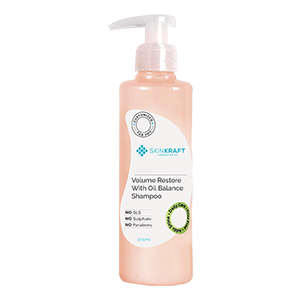Have you found yourself or a friend often pulling out hair from the scalp? And, the habit just does not seem to go away? Well, it might be more than just a habit!
Pulling out hair can be directly related to psychological disorders. A person with this condition may have bald patches of hair over the years. Though underdiagnosed, be assured that it is treatable. Self awareness is the first step towards its treatment and you don't have to live with it. Read more in the next sections.
Highlights:
What Is Hair Pulling Disorder?
Trichotillomania [1], commonly called ‘hair pulling disorder’, is a mental disorder that involves an irresistible urge to pull out one's own hair strand by strand. This is a recurrent condition.
Some people who pull out hair like this may even eat the pulled hair, a condition termed trichophagia. It can mess up with their gastrointestinal health [2].
Patients develop Trichotillomania in their adolescent years, but can experience it regularly or in phases during adulthood. Many people have Trichotillomania, but do not report it due to lack of awareness or fear of embarrassment. While both young men and women can get it, women are more likely to develop this condition.
Symptoms Of Trichotillomania
- Repetitive pulling of hair
- Satisfaction from pulling hair
- Inability to control the urge of pulling hair
- Anxiety and stress
- Counting, twisting, eating hair in some people
- Scalp irritation at the sites where hair is pulled
- Bald patches and hair loss
What Causes Hair Pulling Disorder?
- Stress and anxiety [3]
- Trauma
- Genetic history
- Some doctors believe that it is an obsessive compulsive disorder [4] occurring due to imbalanced chemicals in the brain
Areas Affected In Human Body
People with hair pulling disorder pull out hair from eyebrows, beards and lashes too, besides the scalp.
Did You Know?
- 0.5-3% of people experience hair pulling disorder at some point in their lives.
Treatments For Trichotillomania
While there are not many treatment options available, behavioural therapies like habit reversal therapy (HRT) [5] help in this condition. It comprises of 5 stages:
1. Awareness Training
Helps a person identify the psychological and environmental triggers.
2. Competing Response Training
A person practises replacing hair pulling behavior with a different kind of behaviour.
3. Motivation & Compliance
This stage keeps them motivated to stick to HRT. Praises come in from friends and family during this stage.
4. Relaxation Training
Relaxation techniques like meditation and deep breathing are taught in this stage to combat stress.
5. Generalization Training
The person practises new skills in different situations so that the new behavior becomes automatic.
The medications for Trichotillomania are:
- Serotonin reuptake inhibitors (SSRIs), which are a class of antidepressants [6]
- Clomipramine, a tricyclic antidepressant
- Naltrexone, an opioid antagonist
- Olanzapine, an antipsychotic
- N-acetylcysteine
Note:
One should consult a doctor before turning to these drugs.
Risk Factors & Complications
Risk factors of Trichotillomania typically include other mental conditions like anxiety, stress, depression and obsessive compulsive disorder. Quality of life is affected in people with trich due to periods of depression and anxiety.
20% of people with Trichotillomania eat the hair after they pull it out. The most common and serious complication is the formation of a hairball in the stomach. The hair ball (trichobezoar) [7] can cause nausea, stomach pain, anemia, vomiting and bowel obstruction.
When To See A Doctor?
If you notice yourself pulling out your hair and can't stop this urge, see your doctor. If you are embarrassed about losing hair due to pulling, it is time to see a doctor too. There is an underlying mental disorder beyond this habit of hair pulling, which can be treated with your doctor's guidance.
How To Prevent Hair Pulling?
Stress is a monster that can invite a host of diseases that are unimaginable. Stress triggers Trichotillomania. Keep a calm mind with meditation, yoga and breathing exercises.
If you have anxiety, understand the triggers and try to combat them. Take good care of your hair to make it look healthy. This way you can try to stop yourself from pulling out those hard-earned locks.
Wrapping Up
Trichotillomania or hair pulling disorder is a psychological condition, which often goes unnoticed. Habit reversal therapy is the first line of defence for it. If you notice symptoms, contact your doctor immediately.
1. https://www.ncbi.nlm.nih.gov/pmc/articles/PMC5328413/
2. https://www.niddk.nih.gov/health-information/digestive-diseases
3. https://www.nccih.nih.gov/health/stress
4. https://www.mentalhealth.gov/what-to-look-for/obsessive-compulsive-disorder
Recommended Products
Was this Article helpful?
- Least helpful
- Most helpful





